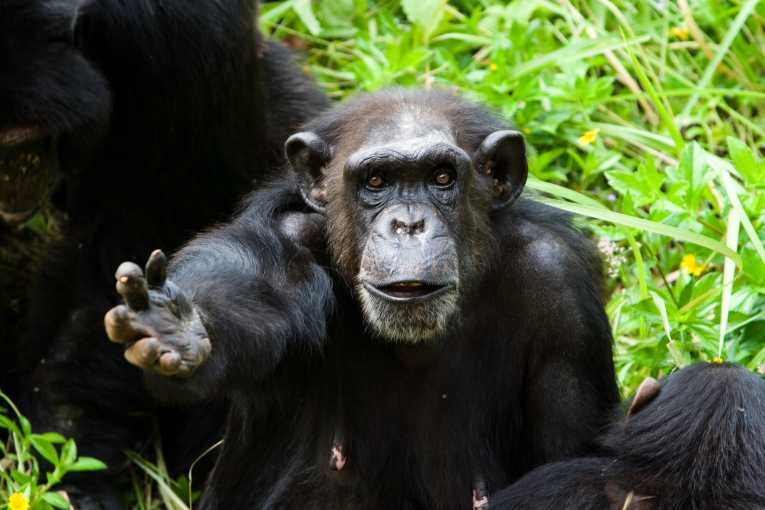Scientists are confirming what animal rights activists have said for decades--that captivity can seriously damage chimps' mental health. Researchers say there is an "urgent need" to learn more about how chimps cope with captivity, and to consider the ethical implications of human-induced mental illness in chimps.
In one study, researchers watched six separate groups of chimps in zoos for a total of 1200 hours and found that all of the chimps - every individual - displayed behavior considered abnormal. Researchers in Uganda spent 1023 hours observing wild chimps, and saw none of the abnormal behaviors that researchers in this study saw.
The captive chimps displayed abnormal behavior in spite of efforts to enrich their lives, like housing them in normal-size social groups. The behaviors strongly suggest mental illness, researchers believe.
Behaviors ranged from constant rocking to self-mutilation. The study considers mental illness "a neglected area of research in great apes." The chimps' abnormal behavior may stem in part from past traumas like early separation from their mothers or a restrictive life entertaining humans. However, researchers believe their histories cannot fully explain the behavior.
In a separate study, researchers found chimps living in sanctuaries showed signs of post-traumatic stress disorder (PTSD) and depression. In this study, researchers examined past case studies of individual chimps' behavior and diagnosed 44 percent of the chimps with PTSD and 58 percent with depression. They also applied the criteria to case studies of wild chimps, and found only 4 percent and .5 percent had PTSD and depression, respectively. Researchers first adapted the DSM-IV criteria to account for differences between chimp and human behaviors.
Past traumas that caused these disorders may have included laboratory testing, being orphaned or traded illegally, or being caught in violent human conflicts. These histories included traumas such as confinement, separation from social groups, total isolation, traumatic capture, invasive procedures, and human-induced diseases.
In nonhuman primates, researchers often discuss "behaviors" but not "syndromes," say the researchers. "There is empirical support for using psychiatric diagnostic criteria for nonhuman primates," say the researchers.
Assigning diagnoses to chimps - or other animals - is a marked shift from speaking merely of "behaviors." A diagnosis signals a problem, validating the suffering of an individual. If it occurs frequently in a population, it implies environmental factors must change. A diagnosis also helps researchers to study where the condition came from by observing patterns in the lives of different individuals.
The real challenge, the researchers say, is how to apply the criteria, since human evaluations typically require verbal communication. However, observation and discussions with third-parties, and using DSM-IV criteria similar to that used for human infants and young children, may provide an alternative.
Orangutans released back to the wild in Sumatra after being illegally held in captivity have displayed disturbing behavior as well. Researchers have observed mothers eating their dead babies on more than one occasion.
The two studies, both released on June 16, suggest the urgent need to learn more about how nonhuman primates and other animal species deal with captivity--and more importantly, to keep them in the wild.
Top Image Credit: © namatae










